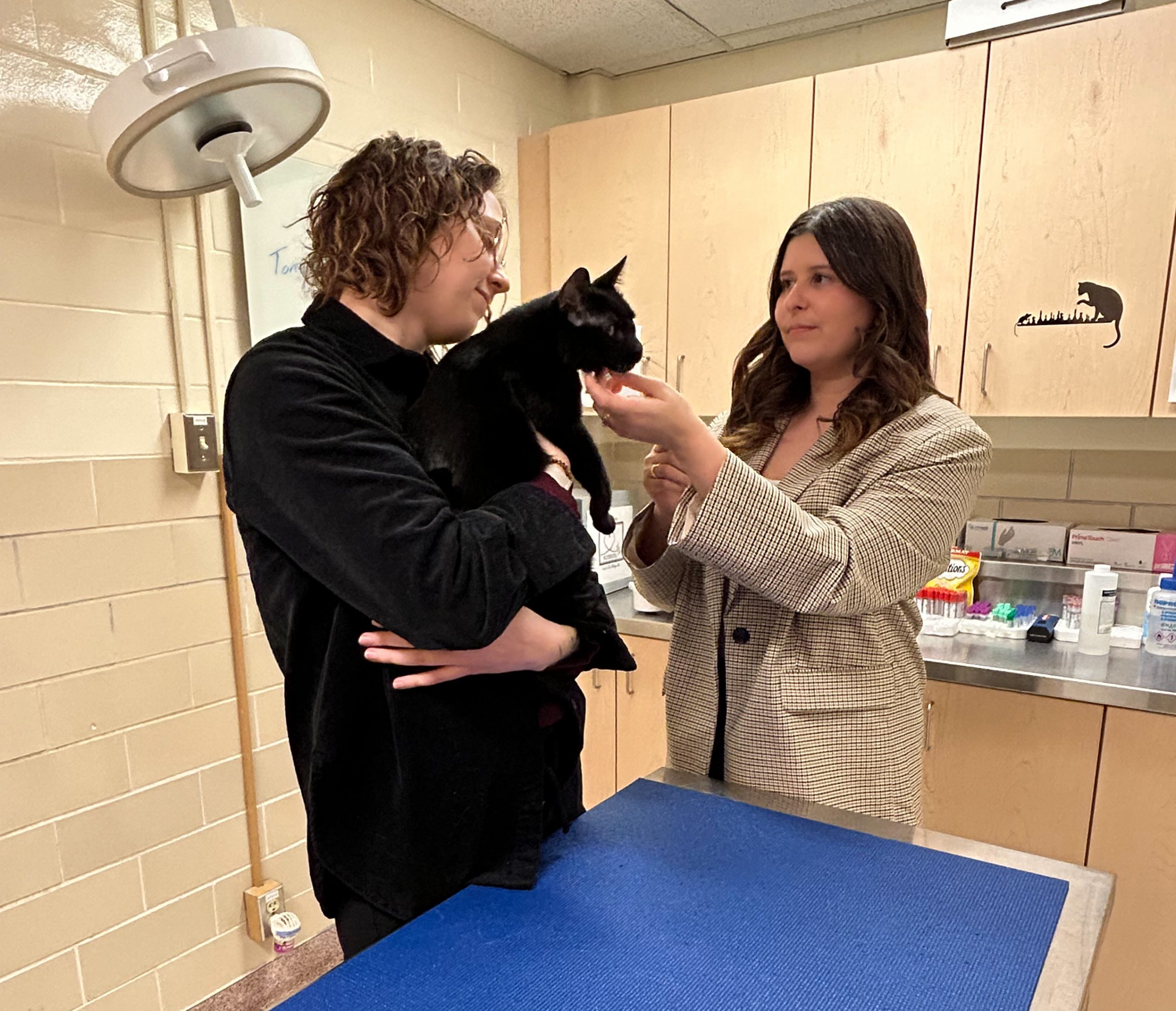GUELPH – At the University of Guelph’s Ontario Veterinary College (OVC), Sarah Bernardi offers a unique service that very few animal hospitals provide: veterinary social work.
Bernardi and other vet social workers, assist pet owners through emotional and ethical concerns regarding an animal health crisis such as sickness or loss.
“Veterinary social work can look like a lot of different things,” said Bernardi.
“But ultimately, it is about supporting the human components of human/animal medicine and recognizing, under the scope of One Health, that animals and people are very much connected in a lot of different ways.”
Bernardi’s role since 2017 at OVC, has been to be fully integrated into the clinical teams of its companion hospital, its large animal hospital and the animal cancer centre.
She said she is part of the care team and is “uniquely positioned” to bridge the gap between clients and their animals’ receiving services and the veterinary team when needed.
“My role is very client facing and kind of separated into two parts.”
Social work skill set
Bernardi provides emotional and decision-making support, and leads her social work skill set during client’s emergency medical treatments.
“Animal’s emergency medical treatments, quality of life conversations around what their companion’s quality of life is now, what they want it to look like, and goals of care as well as end-of-life conversations [which] includes euthanasia,” she said.
“I also offer confidential short term, free of charge, grief support for the clients of OVC.”
Since OVC is a teaching hospital, there are many personnel and moving parts, and the team here works together closely with cases.
Bernardi does case consultation, is present in appointments with clients and staff and debriefs around difficult cases.
“We had something that had unexpected outcomes, [and] that can sometimes leave the staff internalizing that,” she explained.
“I offer a bit of mental health support in the way of helping them set boundaries, helping them talk about their challenging cases and also helping them connect to their mental health resources available to them.”
Experiencing first-hand
Bernardi got into vet social work after completing her Masters of Social Work and specializing in gerontology.
“I wanted to work with older adults around aging in the life course,” she said.
After stumbling across a job opening in downtown Toronto at a private specialty and emergency vet clinic, Bernardi did some researchabout the role.
After completing a three-round interview process, Bernardi got the job.
This new venture had her reflecting on personal experiences dealing with the role.
“I started thinking about a really significant pet loss of mine, which was our first family dog that we got when I was five.
“She was euthanized the day after my 21st birthday… and it was [my] first time ever experiencing euthanasia.”
After looking back at that moment and beginning a new career in social work, Bernardi thought to herself, “Okay, this makes sense.”
Veterinary wellness
There are not many vet social workers in the area, and Bernardi said in terms of being in an actual hospital setting, it is just her in Ontario.
However, she added that “veterinary wellness and mental health is a really big topic right now in the veterinary industry, and for very good reason.”
“It definitely didn’t start at COVID, but I think COVID exacerbated how big of an issue we were having in vet med in terms of losing people to burnout and empathy strain.”
She added that the system of veterinary medicine and veterinary hospitals have “been the same for a long time.”
On top of doing the required clinical care for patients, they work “very tirelessly” with clients to make sure they feel supported.
“It’s such a human centered job, and I think a lot of times we don’t always recognize that,” said Bernardi.
Despite the challenges in veterinary work, Bernardi said one of the highlights of her job is being privy to some of the “really special moments” that people have with their animals.
Even though clients do not come to her when things are going well, Bernardi said it is still something she enjoys doing.
“I think it’s a really wonderful honor [and] a nice privilege to see that people care so much about their animals, and just to see that bond in action.”
“When I see people who are feeling heartbroken and very devastated over potentially losing that companion, or having lost that companion, it reinforces just how important and special it is,” she said.
Resources available
Although Bernardi is currently only available for clients of OVC, there are resources available at pettrust.uoguelph.ca/petlossresources.
“There’s some other options if for some reason you can’t access my service that you can be pointed towards,” she stated.




